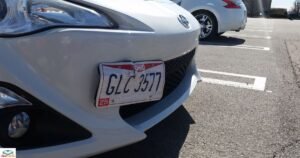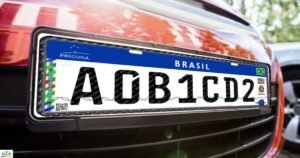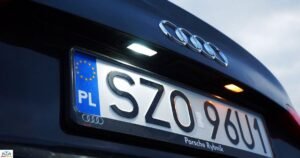When it comes to automotive customization, enthusiasts often seek ways to enhance the appearance of their vehicles. One popular modification is installing aftermarket lighting, including blue license plate lights.
The legality of such modifications raises questions among drivers. Are blue license plate lights illegal? Let’s delve into this topic to understand the regulations and implications associated with altering license plate lighting.
Regulations and Legal Considerations
State Regulations: Laws regarding vehicle lighting, including license plate illumination, vary by state. Each state has its own set of regulations outlined in its vehicle code or statutes. It’s crucial for drivers to familiarize themselves with the specific laws governing their jurisdiction.
Federal Standards: While states have the authority to establish their own vehicle lighting regulations, they must comply with certain federal standards set by the National Highway Traffic Safety Administration (NHTSA).
Federal regulations typically focus on safety aspects such as visibility and color restrictions to ensure uniformity and reduce confusion on the road.
Understanding Blue License Plate Lights

Purpose: License plate lights serve the purpose of illuminating the license plate to make it readable in low-light conditions. They enhance visibility for law enforcement purposes, such as identifying vehicles and verifying registration information.
Color Restrictions: Most states mandate that license plate lights emit white light. This requirement is based on safety considerations and standardization to ensure consistency across vehicles. Blue lights, along with other non-standard colors, may be prohibited due to their potential to obstruct readability or create confusion.
Visibility Concerns: Blue light has a shorter wavelength compared to white light, which can affect visibility and readability, especially at a distance. The human eye perceives blue light differently, and it may not effectively illuminate license plates under certain conditions, such as fog or rain.
Legal Implications
Traffic Violations: Installing blue license plate lights that violate state regulations can result in traffic violations. Law enforcement officers may issue citations or fines for non-compliance with lighting laws. Drivers may be required to remove or replace the non-compliant lights to meet legal standards.
Safety Risks: Non-standard lighting modifications, including blue license plate lights, pose safety risks on the road. Reduced visibility or distraction caused by unconventional lighting can increase the likelihood of accidents or collisions, compromising the safety of both the driver and other road users.
Vehicle Inspections: In some states, vehicles undergo periodic inspections to ensure compliance with safety and emissions standards.
Non-compliant modifications, such as illegal lighting alterations or improper bulbs for the license plate, may lead to inspection failures, requiring corrective action to pass the inspection.
Enforcement and Penalties

| Aspect | Description |
| Authority | Law enforcement officers enforce vehicle lighting laws. |
| Penalties | Fines, points on driving records, increased premiums. |
| Inspections | Vehicles may fail inspections for non-compliant lights. |
| Legal Consequences | Court appearances may be required for serious violations. |
| Safety Implications | Non-compliant lights pose risks of accidents. |
Enforcement of vehicle lighting regulations is crucial for ensuring road safety and compliance with legal standards. It involves penalties such as fines and points on driving records, as well as potential inspection failures and court appearances for serious violations.
FAQ’s
Are blue license plate lights legal?
Blue license plate lights are often illegal because they do not comply with state regulations that mandate white light illumination.
Can I be fined for using blue license plate lights?
Yes, using non-compliant lighting can result in fines, points on your driving record, and increased insurance premiums.
Why are blue license plate lights considered illegal?
Blue lights may hinder readability and visibility, posing safety risks and potentially causing confusion for law enforcement.
Conclusion
The legality of blue license plate lights hinges on compliance with state regulations and federal standards governing vehicle lighting. While aftermarket modifications allow for customization, it’s essential for drivers to prioritize safety and legality when altering their vehicles.
Blue license plate lights, along with other non-standard lighting modifications, may be illegal in many states due to visibility concerns and color restrictions.
Drivers should familiarize themselves with applicable laws and regulations to avoid potential fines, penalties, and safety hazards associated with non-compliant modifications.
Ensuring proper license plate illumination not only promotes legal compliance but also enhances road safety for all motorists.










